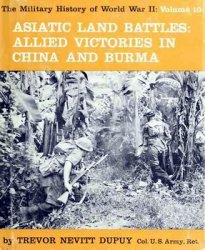Simon Dubnow and lulii Gessen, who were themselves born and raised in the Russian Empire, laid the foundations for Russian Jewish historiography in their sweeping surveys, both attempting syntheses of "external" and "internal" history: Jewish relations with state and society, and Jewry's inner religious, cultural, economic, and political dynamics. Dubnow's History of the Jews in Russia and Poland, while dated in some respects (especially in its evaluation of the motivation behind tsarist legislation on the Jews), nonetheless remains the standard survey of East European Jewish history.6 The work is particularly valuable for its thoroughgoing coverage of all aspects of the Jewish experience, embracing politics, society, religion, and culture. Though Gessen, in comparison, did not have the linguistic tools to plumb the inner workings of Jewish society, in his History of the Jewish People in Russia he nonetheless provides remarkable insight into the inner life and development of Russian Jewry, an analysis oftentimes just as sharp as that of government policies on the Jews (which, given his access to a broad range of archival sources, has in many ways not been surpassed since the publication of the book in 1927).7 The one major flaw is Gessen's insistence, clearly suggested by his context and perhaps his own ideology, on the centrality of the class struggle within the Jewish community, with the alliance between the wealthy elite and the rabbinate taking the place of the bourgeoisie in the Marxist schema. The fact that the theme of class struggle appears only sporadically throughout the book, though, suggests that it was introduced more for the benefit of others than because of Gessen's own convictions.8
Other members of the first circle of Russian Jewish historians include Elias (Eliyohu) Tcherikower, Jacob (Yaakov) Lestschinsky, and Saul (Shoyl) Ginsburg, who began their careers in the tsarist empire and eventually emigrated to Western or Central Europe and then to the United States. Tcherikower, Lestschinsky, and other scholars in Berlin, Warsaw, and vilna established a tradition of social science and quantitative research methods in their work under the institutional umbrella of YIvO, the Jewish Scientific Institute, and in such publications as Bleter far idishe demografye, statistik un ekonomikd Russian Jewish academics who remained in the Soviet Union and continued to write on Jewish topics were often active in the state-sponsored academies of "Jewish proletarian culture" in Kiev and Minsk, and produced several studies on Jewish history and culture that, while marred by ideological bias, remain of value for contemporary scholars (for example, the work of Nokhem Shtif). Also eminently worthy of mention is Arcadius Ka-han, one of Lestschinsky's few successors in the field of the economic history of Russian Jewry.10
Since the Holocaust, however, most scholars in North America and Israel have focused not on the social, communal, and economic history of Russian Jews but on other topics that can be divided into three primary foci.11 The first is the relationship between the Russian state and the Jews, encompassing the dynamic between the imperial bureaucracy, which sought to shape, control, redefine, and limit the Jew, and the Jewish subjects of the tsar, who both responded to these attempts and actively sought to deploy for their own purposes the power of the state.12 A second and related focus examines the interactions between Jews and Russian imperial society; many of these center on the issues of antisemitism and violence.13 A third category of study examines the evolving internal culture of Jews in the Russian Empire, especially the changing self-definition of those Jews in political, intellectual, literary, and cultural terms but also religious traditions such as Hasidism and Musar.14 These studies, along with a small number of excellent surveys, have provided us with a rich portrait of Russian Jewry.15
But there is another category of Russian Jewish history that relates to all of those mentioned above and yet deserves its own place: that of the lived experience of Jews in tsarist Russia. The history of Russian Jewry's Lebenswelt or
Alltagsgeschichte has begun to be explored in a number of recent monographs, but much ground remains to be covered.16 This book seeks to bring to life the everyday struggles and triumphs of Kiev's Jews, from the market trader to the commodities broker to the sugar baron; at home, at work, at prayer, and in community (or, perhaps more accurately, communities). To do so, it draws on a wide variety of sources: statistics, annual reports, individual and collective petitions to the authorities, correspondence between government officials, reports and letters in the press, memoirs, and contemporary works of fiction. The resulting portrait is an attempt to capture the complex textures of Jewish existence and consciousness in a time of rapid change and modernization.




 World History
World History









